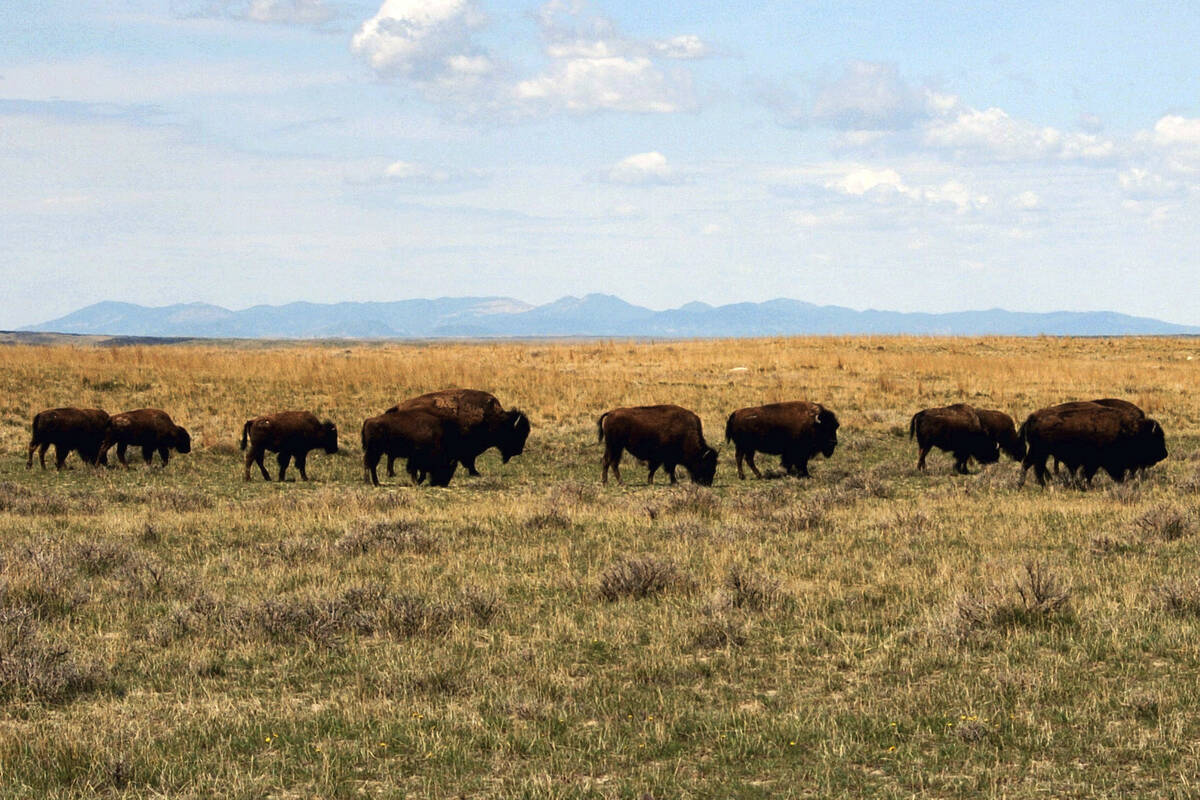COMMENTARY: Utah public lands lawsuit has major ramifications for Nevada
In the latest twist in a long-simmering conflict between Utah and the federal government, state officials filed a lawsuit asking the Supreme Court to determine whether the Bureau of Land Management is authorized to indefinitely control 18.5 million acres of land in the state that has not been set aside by Congress for a specific use.
In suing the BLM and petitioning the Supreme Court to hear the case, Utah is pursuing an aggressive legal strategy to resolve the issue of “unappropriated” lands as quickly as possible. The term “unappropriated” refers to lands the BLM manages in Western states, including Alaska, that are not designated as national parks, wildlife refuges, national forests, tribal lands, wilderness areas, recreational areas or military bases.
“Today, we filed a historic lawsuit asking the U.S. Supreme Court to address whether the federal government can simply hold unappropriated lands within a state indefinitely. Nothing in the text of the Constitution authorizes such an inequitable practice,” Utah Attorney General Sean D. Reyes said in a news release. “In fact, the framers of the Constitution carefully limited federal power to hold land within the states. Current federal land policy violates state sovereignty and offends the original and most fundamental notions of federalism.”
The attorney general’s reference to Utah’s “inequitable” treatment is bolstered by data provided by the attorney general’s office. “The federal government currently controls nearly 70 percent of the land in Utah,” his office said. “In comparison, the federal government owns less than 1 percent of the land in Connecticut, New York and Rhode Island and less than 3 percent of the land in Delaware, Maine, Massachusetts, Ohio and Pennsylvania.”
The 18.5 million acres in the Utah lawsuit represent 34 percent of the state’s land. These lands contain rich deposits of minerals, hydrocarbons and other resources, access to which is controlled by Washington bureaucrats, not officials in Utah. Other states in the West, including Nevada, also are saddled with a vast federal estate that has frequently crippled economic growth in rural areas.
“It is obvious to all of us that the federal government has increasingly failed to keep our lands accessible and properly managed,” Utah’s Gov. Spencer Cox said in announcing the lawsuit. “Utah deserves priority when it comes to managing this land. Utah is in the best position to understand and respond to the unique needs of our environment and communities.”
Utah House Speaker Mike Schultz pointed to BLM’s recently published Public Lands Rule, which would effectively end the legally mandated practice of multiple uses of federal lands in favor of conservation (locking up natural resources) — as “beyond devastating for Utah.” The Salt Lake City Tribune reported that he also cited Washington’s failures in controlling wildfires, protecting wildlife habitats, preventing floods and managing water resources on public lands.
Myron Ebell, the Utah-based American Lands Council chairman, praised Utah’s lawsuit. “Utah’s important case has ramifications far beyond the state. The Supreme Court’s decision will apply to tens of millions of acres across the West and Alaska,” he said in a news release. “Utah and other states have demonstrated over many decades that they are much better stewards of their state lands and wildlife than the federal government is of its vast federal estate. The practical consequences of state and local management of these lands will be to improve environmental quality, increase recreational access, and provide better economic opportunities for rural Americans.”
If Utah wins its case, the state will manage the former BLM land for mining, recreation, livestock grazing and energy development through the Utah Department of Land Management. Although the lawsuit is limited to Utah, the precedent a favorable Supreme Court ruling would set could be followed by other Western states eager to wrest control of their natural resources from the feds. Gaining control of fossil-fuel resources at a time of growing demand for reliable energy would be a job- and revenue-producer for states.
Such a policy is contained in the Rock Springs Resource Management Plan, which sets new conservation- and climate-oriented priorities on 3.6 million acres (about 5,600 square miles) of BLM land in southwestern Wyoming. The decision on how the land will be used will be made in Washington, not in Wyoming, which is what the Utah lawsuit is all about.
Bonner Russell Cohen is a senior policy analyst with the Committee for a Constructive Tomorrow. He wrote this for InsideSources.com.






















